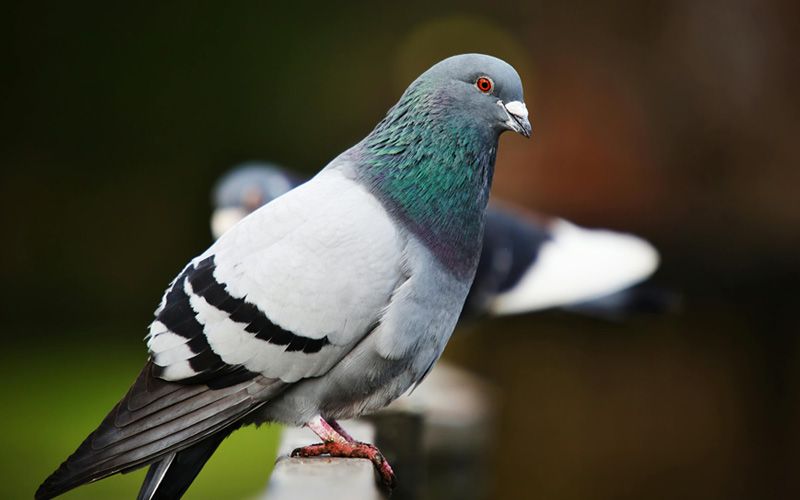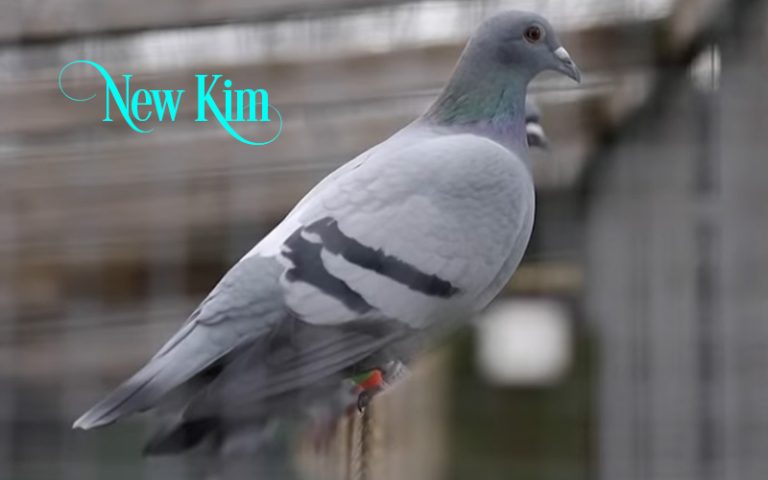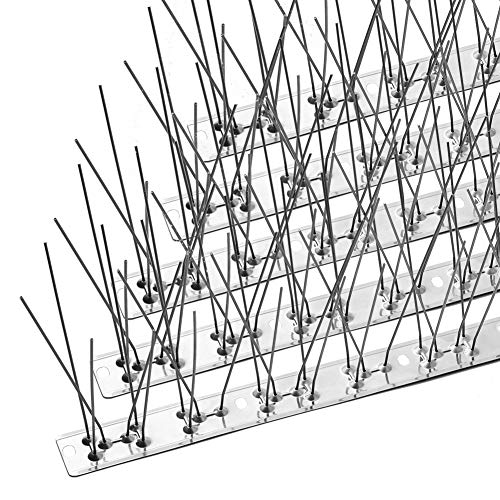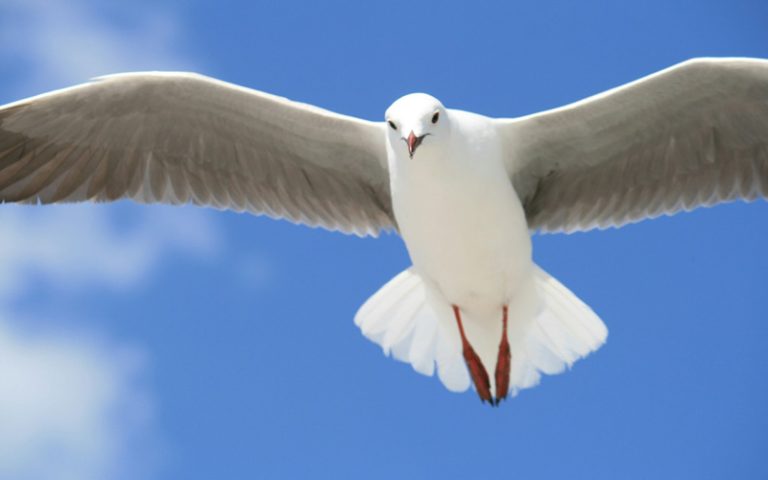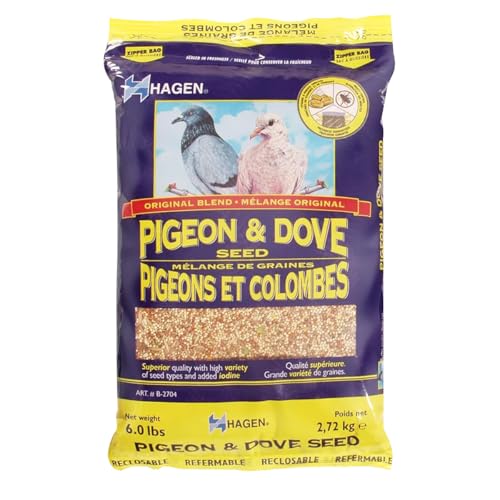How Long Do Pigeons Live? [Pigeon Lifespan]
Pigeons generally live for about 3 to 5 years in the wild. Their lifespan can be influenced by the environment, food availability, and predators. In captivity, where they face fewer threats, pigeons can live up to 15 years. So, in a natural setting, these birds typically enjoy a lifespan of 3 to 5 years.
Pigeon Lifespan:
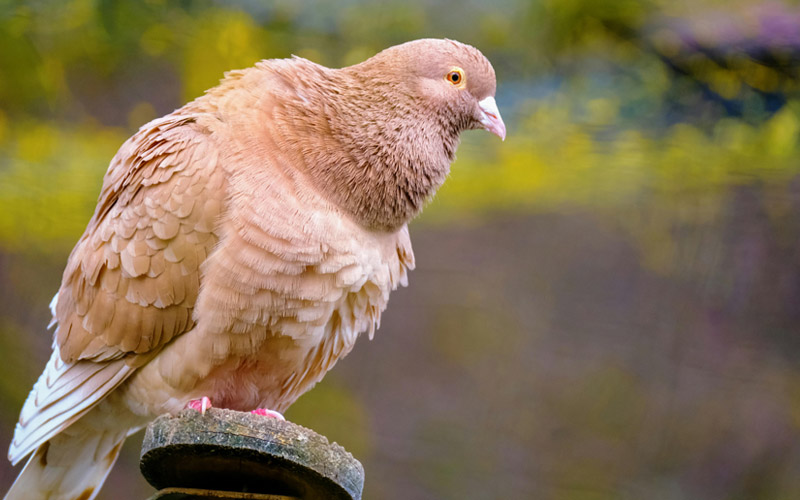
The lifespan of a pigeon varies depending on species, environment, and predators. In general, domestic pigeons (Columba livia domestica), which are commonly found in urban areas, have an average lifespan of around 3 to 5 years. However, some pigeons may live longer, up to 15 years or more, especially if they are well cared for and protected from predators.
The lifespan of wild pigeons varies depending on predation, disease, and environmental conditions. On average, wild pigeons can live anywhere from 3 to 5 years in the wild. However, some individuals have been known to live up to 15 years or more in optimal conditions.
How Long Do Pigeons Live for?
The lifespan of a pigeon can vary on species, environment, and predators. In general, wild pigeons, like the common rock pigeon, have an average lifespan of about 3 to 5 years. However, some pigeons in captivity, such as homing pigeons or those kept as pets, can live longer, reaching up to 15 years or more with proper care. The life expectancy is influenced by access to food, shelter, and protection from predators.
7 Factors Influencing Pigeon Lifespan
Pigeons, with their gentle cooing and distinctive strut, are a common sight in urban and rural settings alike. These birds, known for their adaptability and sociable nature, can have varying lifespans influenced by a combination of environmental, genetic, and lifestyle.
Nutrition
The food pigeons consume significantly affects their overall health and longevity. A well-balanced diet rich in grains, seeds, and greens is crucial for their nutritional needs. Pigeons scavenging for food in urban environments may encounter a variety of offerings, but a diet heavily reliant on processed or unhealthy scraps can lead to malnutrition and a shortened lifespan.
Predation and Safety
The world can be a perilous place for pigeons, with numerous predators on the lookout. From birds of prey to urban predators like cats and dogs, pigeons face constant threats. Those residing in areas with abundant greenery may find refuge from some predators, but urban environments often expose them to increased risks. Pigeons nesting in secure, elevated locations and avoiding areas with high predator activity are more likely to survive longer. Human intervention, such as the installation of anti-predator measures, can also play a role in safeguarding pigeon populations.
Genetics
Just like in humans, genetics significantly influence the lifespan of pigeons. Certain genetic traits can make them more resilient to diseases, better equipped for flight, or capable of adapting to specific environments. Breeding practices also impact the overall health of pigeon populations. Pigeons with strong genetic backgrounds are more likely to thrive, reproduce successfully, and pass on beneficial traits to future generations.
Environmental Conditions
Pigeons are remarkably adaptable, but extreme environmental conditions can take a toll on their health and lifespan. Harsh weather, polluted air, and lack of suitable roosting and nesting sites can negatively impact their survival. Pigeons exposed to a consistently favorable environment, with access to clean water, suitable nesting spots, and moderate temperatures, are more likely to lead longer, healthier lives.
Disease and Parasites
Like any living organism, pigeons are susceptible to diseases and parasites. Avian diseases, such as avian pox and paramyxovirus, can spread rapidly among flocks. Parasites like mites and lice can also affect their health. Regular veterinary check-ups, proper sanitation, and preventive measures can help control the spread of diseases and parasites within pigeon populations.
Human Interaction
The relationship between pigeons and humans can greatly influence their lifespan. Pigeons often inhabit urban areas where human activities abound. While some individuals appreciate their presence, others may view pigeons as pests. Negative interactions, such as intentional harm or poisoning, can significantly reduce pigeon populations. On the contrary, communities adopt a humane approach, providing food in moderation and creating safe spaces for roosting.
Access to Water
Water is a fundamental element for the survival of any living creature, and pigeons are no exception. Access to clean water sources is crucial for their hydration and overall well-being. Pigeons that have regular access to freshwater are better equipped to maintain proper bodily functions and resist diseases. Urban environments with limited water sources may pose challenges, but efforts to provide clean water through bird baths or other suitable means can enhance the quality of life and contribute to an extended lifespan for pigeons.
Pigeon Breeds and Lifespan Disparities
Here’s a table summarizing some pigeon breeds and their typical lifespans:
| Pigeon Breed | Lifespan Range | Description |
|---|---|---|
| Rock Pigeon | 3-5 years (wild), longer in captivity | Common in urban environments, various colors. |
| Homing Pigeon (Racing Homer) | 5-15 years | Bred for racing and homing, various colors. |
| Fantail Pigeon | 7-15 years | Distinct fan-shaped tail, various colors. |
| Jacobin Pigeon | 7-15 years | Unique head crest, ruffled feathers. |
| Indian Fantail Pigeon | 7-15 years | Similar to Fantail with a more upright stance. |
| Modena Pigeon | 7-15 years | Unique body shape, vibrant colors. |
| King Pigeon | 5-15 years | Larger size, broad chest, various colors. |
| Texan Pigeon | 7-15 years | Long body, and a unique wing structure. |
| Utility Breeds (e.g., Racing Homers) | 5-15 years | Bred for practical purposes like meat production. |
How Long Do Pigeons Live in Captivity?
In captivity, pigeons generally have a longer lifespan compared to their wild counterparts. On average, captive pigeons can live anywhere from 10 to 20 years, depending on diet, living conditions, and access to veterinary care. Proper nutrition, a clean environment, and regular medical check-ups contribute to their overall well-being and longevity in captivity.
How Long Do Wild Pigeons Live?
Wild pigeons typically have a lifespan of about 3 to 5 years in the wild. However, their life expectancy can be influenced by predation, availability of food, environmental conditions, and human interference. Pigeons that live in urban areas may have different life expectancies compared to those in rural or natural environments.
How Long Do Domestic Pigeons Live?
Domestic pigeons, also known as rock pigeons or common pigeons, typically have a lifespan of about 5 to 15 years. It depends on various factors such as their living conditions, access to food, and exposure to predators or diseases. In urban environments, where they may face fewer natural predators and have access to food, pigeons tend to have longer lifespans compared to those in rural or wild settings. Proper care, such as providing adequate nutrition and protection, can contribute to their overall longevity.
FAQ
With approximately 4 million pigeons, New York City boasts a pigeon-to-person ratio of 1:2, making these ubiquitous birds a common sight in all five boroughs. Unlike migratory birds, pigeons remain in the city throughout winter, even seeking refuge in subway stations and tunnels during harsh weather. Despite the popular belief that there’s one bird for every New Yorker (implying over 8 million), the actual count is a slightly more manageable but still astonishing 4 million. The city’s skyline truly hosts an urban jungle teeming with these adaptable and resilient birds.
A bird can endure without food for varying durations, depending on species and health. Generally, small birds may only last a day or two, while larger ones can go up to a week. However, this is a stressful and risky situation, as birds need food for energy. It’s crucial to ensure timely feeding to maintain their well-being and vitality.
Wood pigeons typically live for about 3 to 5 years. Their lifespan is influenced by predation, disease, and availability of food. In favorable conditions, these birds can enjoy a relatively long and healthy life, while facing threats in the wild that can impact their longevity.
Pigeons naturally die due to old age, diseases, predation, and accidents. They may succumb to illnesses like infections or parasites, suffer injuries from fights or collisions, or fall prey to predators like cats or hawks. Additionally, environmental hazards like harsh weather conditions or lack of food can also contribute to their demise. Overall, pigeons face a range of natural risks that can lead to their death.

